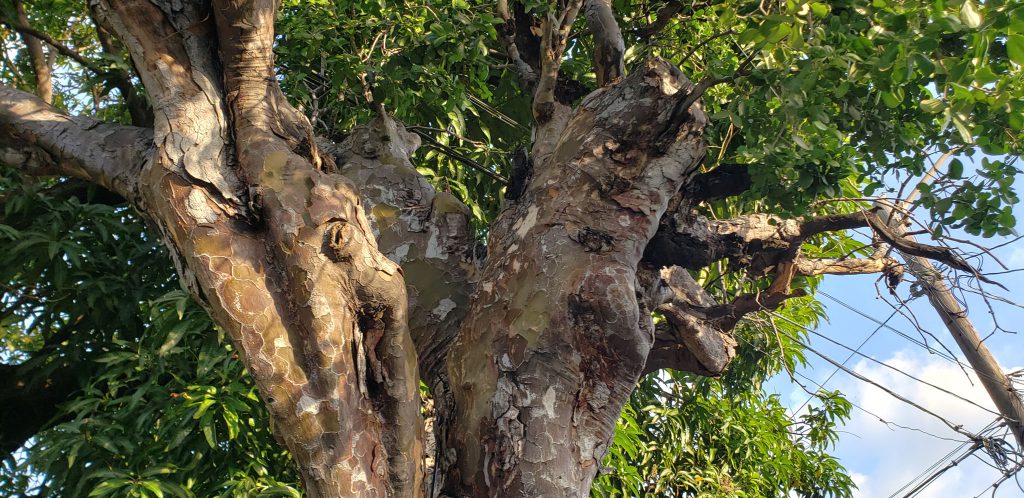Lignum Vitae
Scientific name: Guaiacum officinale, Guaiacum sanctum
Common names: Lignum Vitae (wood of life)
Lignum vitae is a remarkable tree with a rich history and extraordinary properties. From its incredibly hard and durable wood to its historical uses in shipbuilding and medicine, lignum vitae continues to fascinate and inspire people around the world. While its commercial exploitation has declined in recent years, lignum vitae remains a symbol of resilience and endurance, reminding us of the importance of sustainable resource management and conservation efforts.
Lignum vitae, native to the Caribbean, is a small to medium-sized tree that typically grows up to 10-15 meters (33-49 feet) in height, although some specimens can reach heights of up to 20 meters (66 feet). It has a dense, compact crown with dark green, glossy foliage composed of small, leathery leaflets. The tree produces clusters of small blue or purple flowers, followed by small, round fruits containing seeds.
The wood of lignum vitae was highly sought after for its durability and resistance to moisture, making it ideal for various components of shipbuilding including bearings, propeller shafts, and pulleys. Due to its hardness and self-lubricating properties, lignum vitae wood was valued for its ability to withstand heavy loads and friction without wearing out.
Medicinal uses:
The dense and hard wood of lignum vitae was used in various forms for medicinal purposes. It was often ground into a powder or shaved into small chips and then prepared as infusions, decoctions, or tinctures. These preparations were ingested or applied externally to treat a wide range of ailments, including arthritis, rheumatism, syphilis, respiratory conditions, and digestive issues.
The resin extracted from lignum vitae, known as guaiacum, highly valued for its medicinal properties, was used as a remedy for venereal diseases, including syphilis, due to its purported antibacterial and antiseptic properties. Guaiacum resin was typically administered orally or used topically as an ointment or poultice.
